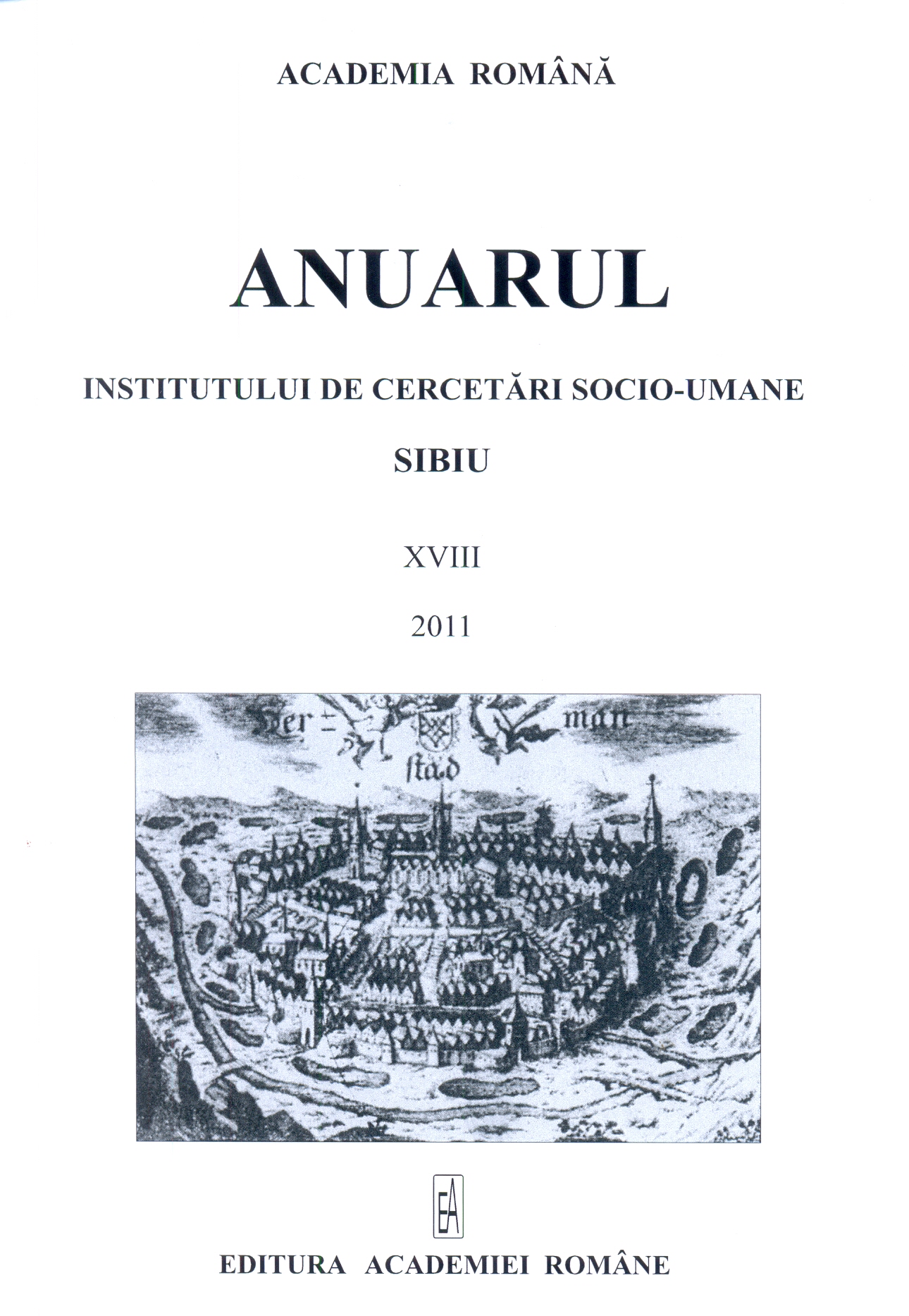ELITA GERMANILOR DIN ROMÂNIA INTERBELICĂ. STUDIU DE CAZ: PARLAMENTARII
THE GERMAN ELITE IN INTERWAR ROMANIA. CASE STUDY: PARLIAMENTARIANS
Author(s): Vasile CiobanuSubject(s): Political history, Government/Political systems, Electoral systems, Interwar Period (1920 - 1939), Ethnic Minorities Studies
Published by: Editura Academiei Române
Keywords: elite; Germans of Romania; MPs; interwar period;
Summary/Abstract: In Romania the research of the elites began after the removal of the communist regime in 1989. The present paper deals only with a small group of the leading elite of the Germans from Romania: MPs, members of the Assembly of Deputies and the Senate. The Germans constituted 4.1% out of Romania’s population (754,000 in 1930). They lived in different parts of the country: in the Old Kingdom (30,000), in Banat (280,000), in Bessarabia (80,000), in Bukovina (75,000), in Dobrogea (12,000), in Sătmar (30.000) and in Transylvania (250,000). After 1918 Germans organized themselves in the Germans’ Union of Romania. At the first parliamentary elections in November 1919, they elected 26 deputies and senators. They formed the German People’s Party of Romania, which was in fact a political faction. The chosen president was the deputy of Sibiu, Rudolf Brandsch, and secretaries Hans Otto Roth and Josef Gabriel. At the other nine elections that followed in the interwar years, the number of MPs elected German was still low (July 1927). German MPs were chosen from a small group of leaders (50–60 in the interwar years). The most prominent elected several times were: H.O. Roth (elected in 10 legislative periods), Fritz Connert, Wilhelm Binder, Rudolf Brandsch (Transylvanian Saxons), Franz Kräuter, Kaspar Muth, Emmerich Reitter, Hans Beller, Karl von Möller (Banat Swabians), Alois Lebouton and Alfred Kohlruss (Germans from Bukovina), Daniel Haase (Germans from Bessarabia). They presented the German minority’s demands in the Romanian Parliament: the recognition of collective rights for minorities, the inclusion of national minorities’ rights in the Constitution and in other laws, full equality with Romanians in all areas, government support for the German minority culture and its churches, the right to use mother language in public affairs, in schools and in church, state financial support for churches and for religious schools etc.; they also demanded the right to maintain relations with Germany and Austria, but declared themselves loyal citizens of Romania. The vaste majority of German MPs were graduates of Universities from Budapest, Vienn, Berlin, Munich, Marburg, Tübingen etc. They were lawyers, teachers, priests, high officials, journalists and had professional and political prestige in the Romanian interwar society. In the Bucharest Parliament they constituted a model of discipline and of activity for defending the German minorities’ interests. In the face of Nazi ideology that permeated the ranks of the minority, they defended the values of the democratic system. From the adherents of Nazism just a few managed to enter Parliament at the last elections in 1939 (Waldemar Gust, Hans Beller). German MPs in interwar Romania were true representatives of the German minority. They defended and supported the national identity of this ethnic group. Some of them were elected in more legislative periods, becoming thus professional politicians.
Journal: Anuarul Institutului de Cercetări Socio-Umane Sibiu
- Issue Year: XVIII/2011
- Issue No: 18
- Page Range: 85-98
- Page Count: 14
- Language: Romanian
- Content File-PDF

